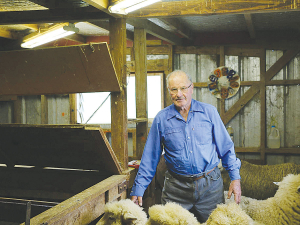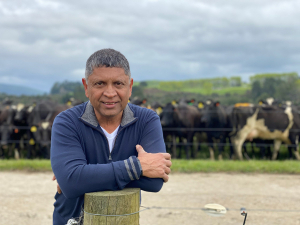OPINION: About five or six years ago, I attended the National Conference of the Farm Forestry Association, held in the Manawatū.
At this field day, two scientists stressed the importance of genetic variation (GV) in their work of breeding trees that had better quality timber but also had resistance to fungal diseases. Until that time, I had never given much thought to the subject of genetic variation or its importance. However, as farmers we are unconsciously using it to breed more productive, quality animals and plants. GV is present in all living organism from large mammals, plants, insects, microbes, germs and viruses. In nature, GV is a vital component of life. It enables living beings to adapt to the temperature variations between seasons. GV allows animals to grow and shed winter coats; trees in colder areas to shed some or all of their leaves; some animals by hibernating, others ovulating at a time to ensure maximum survival of their offspring.
Humans have exploited GV to increase the productivity of our production animals; improved the wild cereal crops and bred variants that can grow and thrive outside their normal habitat. We have improved the quality and varieties of fruits vegetables flowers ornamental trees and shrubs including our timber trees.
In 1950, I took over our Romney Stud, which my father established in 1922. He was a conventional breeder who bred for breed type and structural soundness – including heavy quality wool. At that time the Perendale and Coopworth breeds didn’t exist, and Romney made up about 80% of the national flock.
This dominance led to a dominant Romney breeder hierarchy, which sought to dominate the whole sheep industry and was largely successful. In most instances, dominance leads to a degree of arrogance.
Leading breeders, by the power of their success set the course for the breed to follow and we all followed. They used GV to breed for the traits they considered important, namely breed type and structural soundness – including soundly structured feet. Apart from wool, no other production trait was on their radar. Their thinking was that foot diseases were caused by germ infection, and germs cannot be bred for or against.
At this time, farmers regularly cured foot diseases by trimming feet and by putting their whole flocks through foot baths set in races. I agreed with this thinking and ordered the materials to construct a foot bath. At the same time, I was looking into foot diseases in the progeny of my two main sires.
With their many progeny over several years, I assessed the number of sheep that had footrot or scald. I found that one sire’s progeny had by far the most problems. I concluded that some sheep were more prone to this problem and therefore there had to be genes involved.
With this genetic variation, a sheep with more resistance could be bred. So, the theory of the leading Romney breeders at that time, in this matter was wrong.
The foot bath was never constructed. Instead, my new policy was to cull the worst affected sheep and only select the best. This programme was intensified over time. After 25 years, foot problems became a minor issue rather than a major problem, all a result of the principle of genetic variation.
After having success in this area, it became a strong motivator to breed sheep to be resistance to worm challenges where GV plays a major factor.
Initially, I was greatly encouraged. I had 12 sires, and all their sons were faecal egg counted (FEC). When analyzing the results, I found a 5-fold difference between the average FEC between the best and worst sires.
Then it became the simple matter of mating the best son from the best sire with the daughters of other low FEC sires. This became the first step in a long journey taking 34 years to achieve the desired result of meaningful worm resistance.
Gordon Levet is a long time Northland ram breeder who has spent a lifetime working on breeding and developing more worm resistant sheep.











